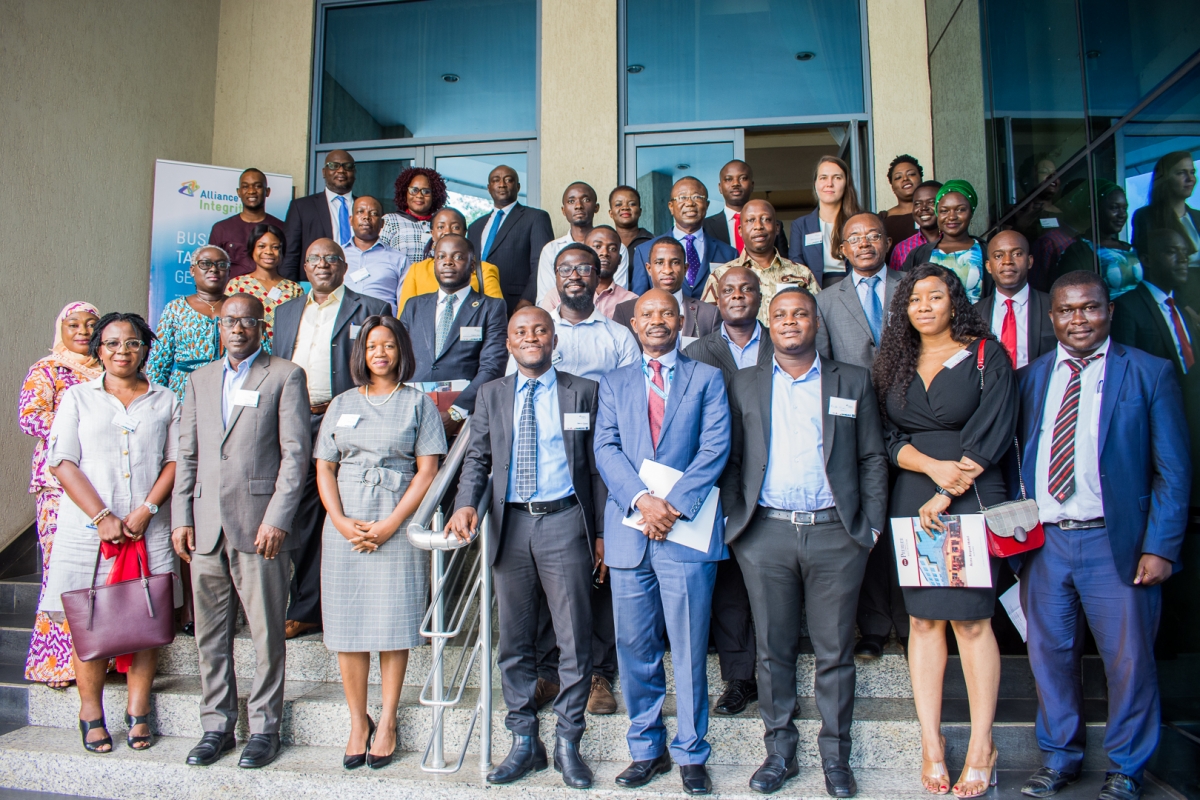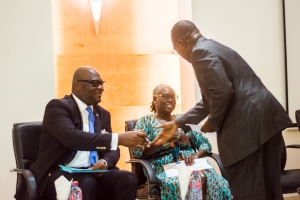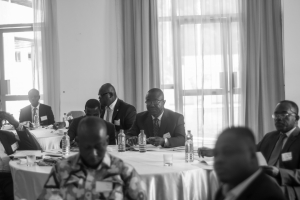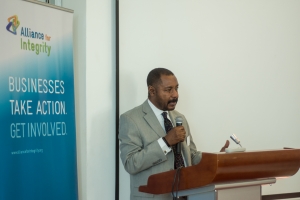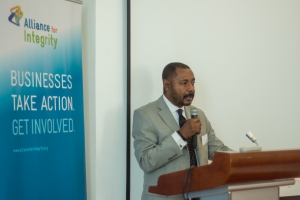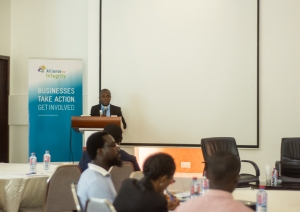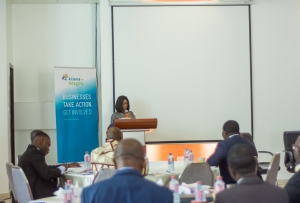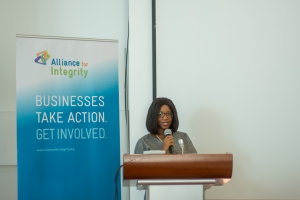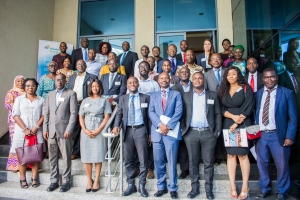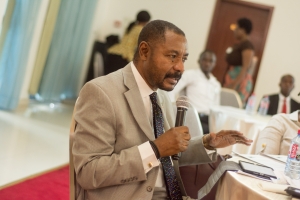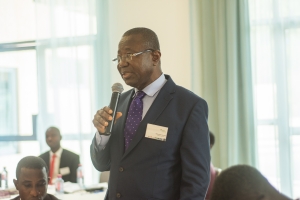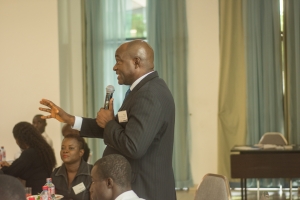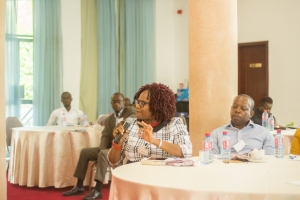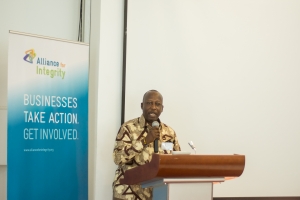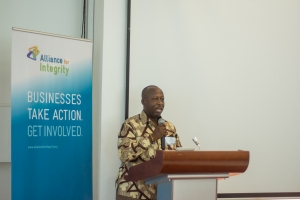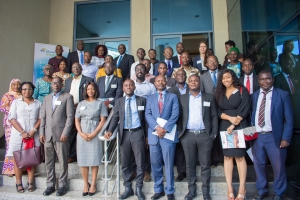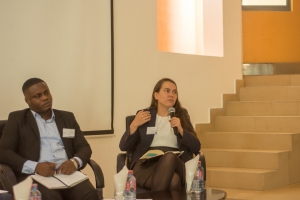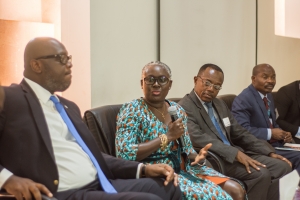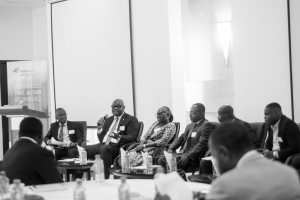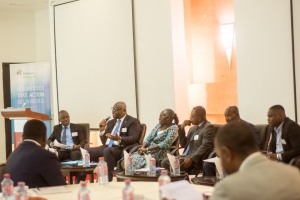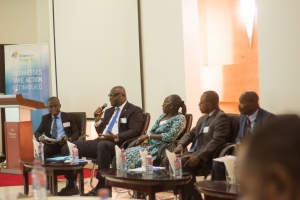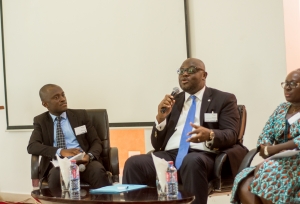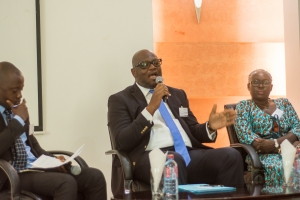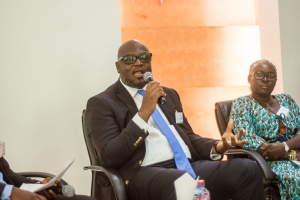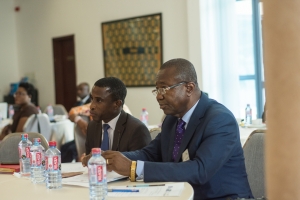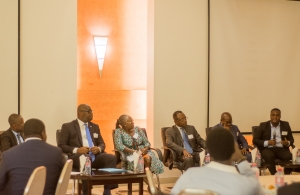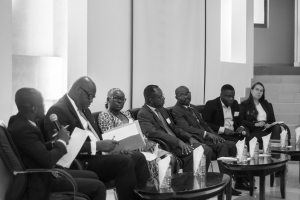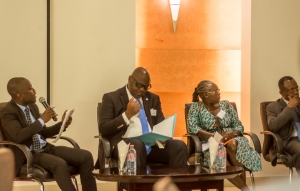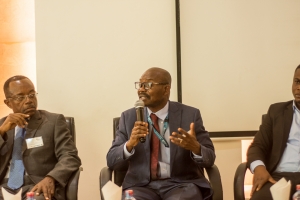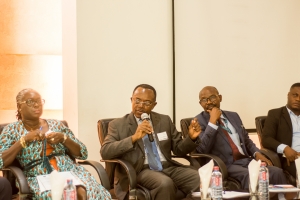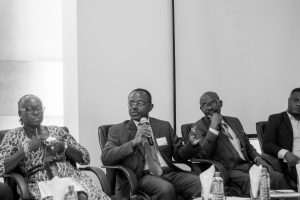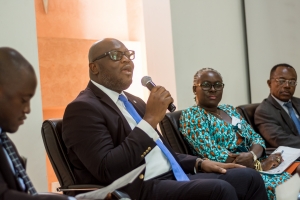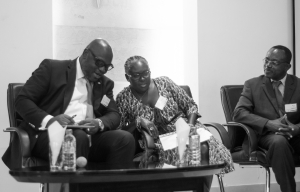The American Chamber of Commerce in Ghana joined Alliance for Integrity for their Business Integrity Forum on Tuesday, December 10, 2019, in Accra. The event was to mark the International Anti-Corruption Week and discuss the fight against corruption in light of the African Continental Free Trade Agreement (AfCFTA).
Executive Secretary of the Chamber, Simon Madjie joined N. Adjoba Kyimah, Executive Director at UKGCC, Stephen Antwi, President of the Ghanaian – German Economic Association, Soloman Tettey-Akpeng, Governing Board Member at the Global Compact Network Ghana, Beauty Narteh, Executive Director at Ghana Anti Corruption Coalition, and Ingrida Kerusauskaite, Project Director at Palladium/MoDAC, for a panel discussion on the role of the private sector in the fight against corruption in light of the AfCFTA.
Simon Madjie spoke on the anti-corruption principles in the United States-Mexico-Canada Agreement (USMCA) and suggestions for AfCFTA. He shared some key measures being adopted by the USMCA to address the issue of corruption. Some of these measures include Legislative Measures which will require the signatories to adopt or maintain legislative or other measures to criminalize bribery of a public official; bribery of a foreign public official; soliciting or acceptance of a bribe as a public official; embezzlement, misappropriation, or another diversion by a public official of property entrusted to the public official; and aiding or abetting of or conspiracy in the bribery-related offenses listed above.
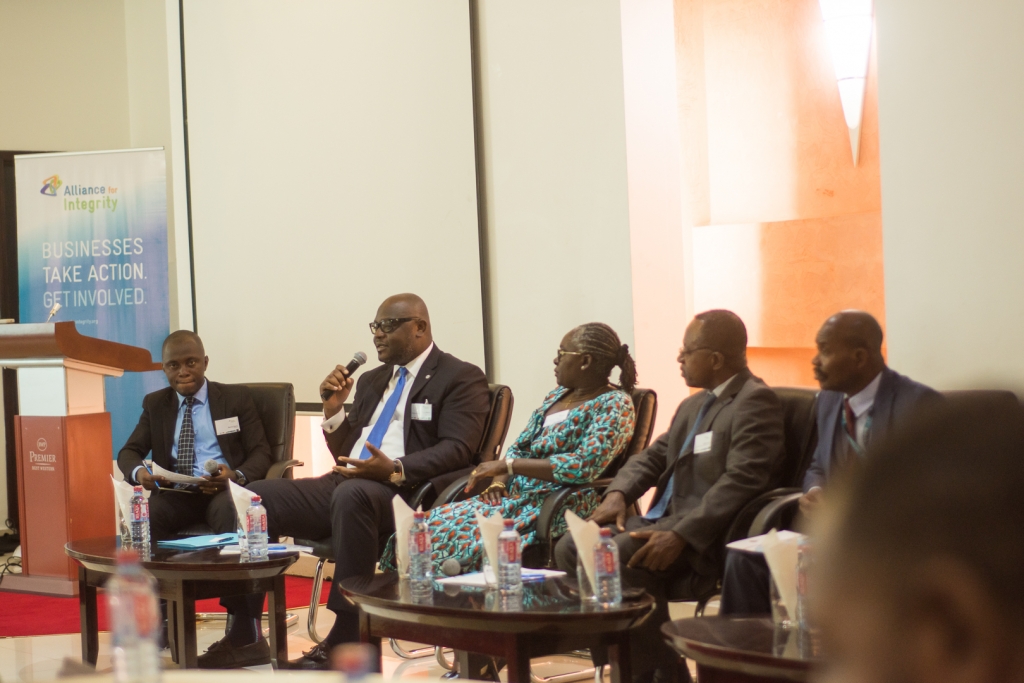
The USMCA also contains Administrative Measures that will require the signatories to adopt or maintain measures that provide for sound accounting and auditing standards for enterprises that prohibit recording “off-the-books” accounts, non-existent expenditures, and similar transactions. It also provides for the protections for whistleblowers, the disallowance of tax-deductibility of bribes, adequate procedures for selection and training of individuals for public positions considered especially vulnerable to corruption, requirements that senior public officials declare outside activities, employment, investments, assets, and substantial gifts or benefits, procedures for removing public officials accused of corruption-related offenses, and measures to strengthen integrity and to prevent opportunities for corruption among members of the judiciary.
Mr. Madjie suggested that adopting some of these anti-corruption measures which also include Promotional Measures committing signatories to take steps to raise awareness among public officials of relevant bribery laws and recognize the harmful effects of facilitation payments – and incorporating them into the AfCFTA will go along to see to the corruption-free implementation of the agreement.
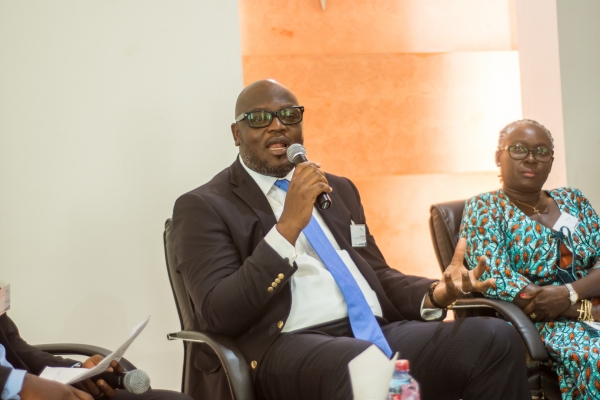 He also added that Chapter 27 of the USMCA stands out from past international anti-corruption agreements in terms of enforceability. Specifically, Chapter 27 explicitly permits the parties to initiate claims through the USMCA’s dispute settlement mechanism to challenge measures alleged to be inconsistent with the Chapter’s requirements. Like other disputes arising under the USMCA, anti-corruption related disputes may be resolved through consultation, conciliation, mediation, or even the establishment of panels as a neutral adjudicator of disputes. Accordingly, in theory at least, one USMCA party may someday be able to bring another USMCA party before an international panel to hold it to account for failure to live up to its anti-corruption obligations.
He also added that Chapter 27 of the USMCA stands out from past international anti-corruption agreements in terms of enforceability. Specifically, Chapter 27 explicitly permits the parties to initiate claims through the USMCA’s dispute settlement mechanism to challenge measures alleged to be inconsistent with the Chapter’s requirements. Like other disputes arising under the USMCA, anti-corruption related disputes may be resolved through consultation, conciliation, mediation, or even the establishment of panels as a neutral adjudicator of disputes. Accordingly, in theory at least, one USMCA party may someday be able to bring another USMCA party before an international panel to hold it to account for failure to live up to its anti-corruption obligations.
The current version of the AfCFTA addresses concerns about corruption in trade only obliquely and insufficiently. The current version of the treaty does include a section on transparency (Part IV), which mandates that “each state party shall promptly publish or make publicly available through accessible mediums its laws, regulations, procedures and administrative rulings of general application.” However, there is no mention of how to ensure that making laws publicly available is matched with fairness and integrity in how these laws are enforced. Another section of the treaty mandates that State Parties “shall take appropriate measures” to promulgate and sustain “enhanced efficiency of customs procedures, trade facilitation, and transit,” but does not specifically reference curtailing customs corruption as one of those measures that would be “appropriate.” And although the agreement’s Protocol on Trade in Goods specifically mentions that “nothing in this Protocol shall be construed as preventing the adoption or enforcement of measures by any State Party that is necessary to protect public morals or to maintain public order,” there is no clear guideline on ensuring fair and honest enforcement.
In conclusion, Mr. Madjie suggested it is crucial for the AU to take a second look at the AfCFTA and to start developing ways to update the document by incorporating anti-corruption measures into the agreement.

